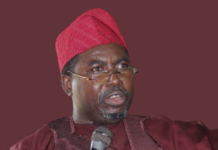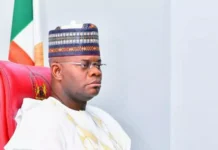President Muhammadu Buhari yesterday urged the nation’s judges to guard the independence and integrity of the Judiciary and refrain from acts capable of diminishing public trust in the system.
The President advised them to ensure prompt justice administration and eliminate delays associated with the ’s judicial system.
He noted that the delay was not entirely that of the judges, saying there is need to adopt stringent measures to deter lawyers who delay proceedings.
President Buhari assured the Judiciary that his administration would continue to push for financial autonomy for the arm of government.
The President, who spoke through Vice-President Yemi Osinbajo at the opening session of this year’s biennial All Nigeria Judges’ Conference in Abuja, said: “There is, in my humble view, nothing as more important than for judges to be trusted for honesty and integrity. Men and women who have the power over the lives and livelihoods of others are not like the rest of us. We must place them on the highest scale of probity.
“I would like to urge that your lordships must not allow a few to undermine the respect and trust, both local and international, that our Judiciary has built up in over a century of its existence.
“The Judiciary remains the last hope of the common man. It exercises powers that affect lives and liberties. A trusted, well-resourced and well-functioning Judiciary is, therefore, essential to the entrenchment of rule of law.
“To maintain this revered position and retain greater public confidence by the citizens, the Judiciary must be independent from all forms of interference and must maintain the highest level of responsiveness, professional standards, and integrity.
“We will continue to partner with you in ensuring that the Judiciary is financially independent, and effectively and sustainably retains a preeminent position in the quality of jurists manning our courts and the jurisprudence that develops from their collective premier reasoning.”
On the delay in the dispensation of justice, President Buhari noted that such occurrence was a disincentive to investment and called for enhanced deployment of technology to help the operations of the Judiciary.
“As my lords are aware, delay in the dispensation of justice, coupled with the increase in the number of cases in our courts, have remained subjects of grave concern.
“As someone said: ‘Our problem is not access to justice; it is exiting the justice system.’ And I know that delays are not necessarily the fault of judges; lawyers are often responsible.
“Should we not then, as being suggested by some, be evolving a cost-award system that recognises the court as a finite and expensive public resource? And as such, delays and other dilatory tactics are visited with deterrent costs?
“We are part of the global marketplace for investment and legal services. The extent to which we can attract business to our country depends in part upon investor perception of the quality of our justice delivery system. If we are seen as inefficient and ineffective, we would lose out to more efficient systems,” he said.




